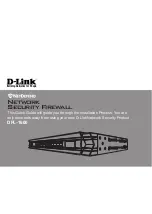
5-2
Cisco uBR7200 Series Universal Broadband Router Hardware Installation Guide
OL-5421-03
Chapter 5 Maintaining the Cisco uBR7200 Series Router
Environmental Monitoring and Reporting Functions
For information about installing and configuring port adapters, refer to the applicable Cisco uBR7200
series port adapter installation and configuration document at the following URL:
http://www.cisco.com/univercd/cc/td/doc/product/cable/cab_rout/cfig_nts/index.htm
Caution
The network processing engine, the I/O controller, and the cable clock card are system components that
cannot be removed if the universal broadband router is operating. Removing the network processing
engine, the I/O controller, or the cable clock card (Cisco uBR7246VXR only) while the Cisco uBR7200
router is operating causes the router to shut down or crash, and might damage or destroy memory files.
Each port adapter and cable interface line card has a bus connector that connects it to the routers’s
midplane. Each midplane connector has a set of tiered pins in three lengths. The pins send specific
signals to the system as they make contact with the port adapter or interface card. The system assesses
the signals it receives and the order in which it receives them to determine if a board is being removed
or inserted into the midplane. From these signals, the system determines whether to reinitialize a new
interface or shut down a removed interface. For example, when inserting a port adapter, the longest pins
make contact with the port adapter first, and the shortest pins make contact last. The system recognizes
the signals and the sequence in which it receives them.
When you remove or insert a port adapter or cable interface line card in a Cisco uBR7200 series router,
the midplane pins send signals to notify the system, which then does the following:
1.
Rapidly scans the midplane for configuration changes.
2.
Initializes all newly inserted port adapters and cable interface line cards, noting any removed
interfaces and placing them in the administratively shutdown state.
3.
Brings all previously configured interfaces on the port adapter or cable interface line card back to
the state they were in when it was removed. If the same type of port adapter or interface line card
type is reinserted into a slot, its ports are configured and brought online up to the port count of the
original port adapter or cable interface line card. If, however, any new interfaces are put in the
administratively shutdown state, as if they were present (but not configured) at boot time the system
must be configured.
Environmental Monitoring and Reporting Functions
Environmental monitoring and reporting functions are controlled by the network processing engine and
allow you to maintain normal system operation by identifying and resolving adverse conditions before
loss of operation. The environmental monitoring functions constantly monitor the internal chassis air
temperature and DC supply voltages. Each power supply monitors its own voltage, currents, and
temperature and shuts itself down if it detects a critical condition within the power supply. If conditions
reach shutdown thresholds, the system shuts down to avoid equipment damage from excessive heat. The
reporting functions periodically log the values of measured parameters so that you can retrieve them for
analysis later, and the reporting functions display warnings on the console if any of the monitored
parameters exceed defined thresholds.
















































